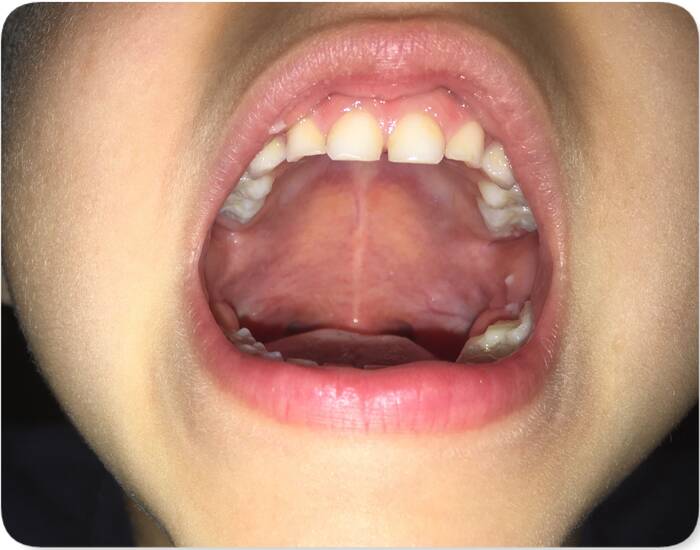Will a loose baby tooth fall out on its own? A baby tooth that moves, how long does it take to fall out? What if it doesn’t fall out? Should I be worried? Why is the gum sometimes red (inflamed)? What should be done in all these cases?
I. A Bref Reminder About Baby Teeth
Baby teeth are the temporary teeth that appear in a child’s mouth. These are their first teeth.
Children develop their first baby teeth around the 6th month. These teeth are the central, upper, and lower lateral incisors. Then, between the 12th and 24th months, the upper and lower canines come in.
Eventually, a total of 20 baby teeth will develop in their mouths.
They start to fall out between the ages of 5 and 6, but it can happen earlier. The last baby teeth fall out around age 12.
Although they are temporary, it is important to take care of them to ensure the health of the permanent teeth.
II. Baby Tooth Moving, How Long Does It Take to Fall Out?
The fall of the baby’s teeth is a special moment for the child. It is a stage that changes his status, and during which he must be accompanied.
There is no fixed time between the moment a tooth starts to move and the moment it falls out.
The baby teeth start to move normally because, under the gum, a permanent tooth is growing.
It is the action of this tooth that starts to move the baby tooth, which begins to lose its attachment to the gum.
Several things can affect the time it takes for a baby tooth to fall out. If the permanent tooth is already present, then it may fall out more quickly.
Although it may be tempting, it is not advisable to force a loose tooth to fall out. It’s better to let it fall out on its own, which will happen eventually.
Now, if the baby’s tooth moves for a long time without falling out, it is important to go see a dentist. The dentist will take an x-ray to see what is happening under the gum.
Normally, all baby teeth fall out around the age of 12. If the baby’s teeth are still present after this age, a consultation may be necessary.
III. Will a Loose Baby Tooth Fall Out on its Own?
Usually, all loose teeth fall out sooner or later.
However, in exceptional cases, a baby tooth may move, but despite the passage of time, it does not fall out.
These are rare cases, which require a visit to a dentist. There are not many reasons why a tooth may move without falling out.
It can happen if the baby tooth blocks the exit of the permanent tooth. Another cause could be that the permanent tooth is missing or retracted inside the gum.
IV. Moving Baby Tooth and Red Gums?
Sometimes a baby tooth that moves can cause bleeding. This bleeding is usually not heavy.
Small amounts of bleeding are not a cause for concern at this level.
However, if the gum is red around a loose baby tooth, you should be careful.
Red gums can be associated with pain, especially during chewing. This may be due to the eruption of the permanent tooth just below. A dentist will be able to confirm this by carrying out an X-ray examination (the dental panoramic).

